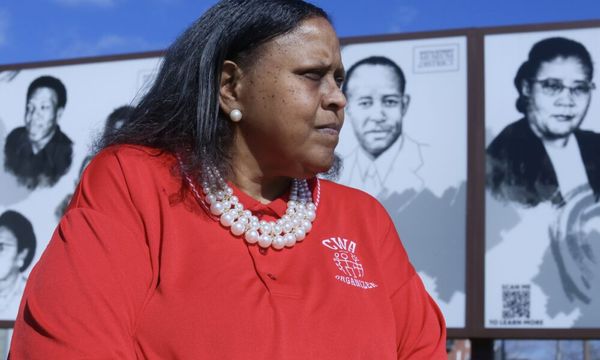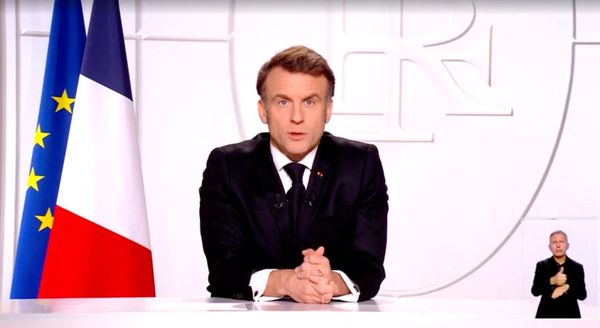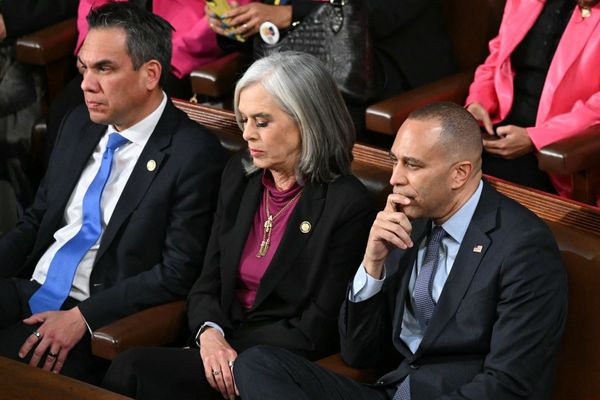Disney has been facing a firestorm from conservative Republicans in recent months over the company’s vow to help repeal a Florida law that limits how LGBTQ people and issues can be talked about in schools.
Now, Democrats are irate over a decision by the Disney-owned streaming service Hulu to not air ads about abortion and guns — two central points in Democrats’ midterm campaigns.
“Hulu’s censorship of the truth is outrageous, offensive, and another step down a dangerous path for our country,” according to a statement by the leaders of the Democrats’ Senate and congressional campaign committees and its gubernatorial association. “Voters have the right to know the facts about MAGA Republicans’ agenda on issues like abortion — and Hulu is doing a huge disservice to the American people by blocking voters from learning the truth about the GOP record or denying these issues from even being discussed.”
A person at Disney familiar with the matter said that while Hulu accepts candidate ads, the streaming service was firmly within its rights to decide which ads to air.
“To minimize misinformation and to protect the consumer experience, Hulu’s long-standing guidelines prohibit advertising that takes a position on a controversial issue of public importance, and Hulu has always reviewed candidate ads on a case-by-case basis,” the person said.
The kerfuffle began July 15, when the Democratic Senatorial Campaign Committee, the Democratic Congressional Campaign Committee and the Democratic Governors Association sought to place ads about abortion rights and gun violence on Hulu, Facebook, YouTube, Roku, NBC/Universal, ESPN and the ABC affiliate in Philadelphia, according to a national Democratic Party official. The last two, like Hulu, are also owned by Disney.
One ad argues that the recent Supreme Court decision overturning Roe v. Wade is the result of a “coordinated Republican attack on abortion” and that the GOP would seek to ban abortions nationwide. The other cites statistics on gun deaths including the number of children killed and claims that “Republicans are more devoted to the gun lobby than taking common sense action to make our kids safe.”
“Make your voice heard” by voting in November, both ads conclude.
The ads ran on every outlet except Hulu, which has more than 45 million subscribers. In addition to streaming many broadcast and cable stations’ shows, it creates original programming such as the award-winning “The Handmaid’s Tale” series.
Jessica Levinson, an election law professor at Loyola Marymount University, said Hulu was legally in the clear. Though the 1934 Communications Act requires television networks to air ads from the major political parties, there is no similar mandates for streaming services.
“Legally, Hulu can basically pick and choose which political advertisements to run. This is another example of technology outpacing the law,” she said. “If people don’t like Hulu’s decision, the solution is to cancel your (subscription), not file a lawsuit.”
Indeed, some social media users tweeted about canceling their subscriptions using the hashtag #BoycottHulu. Others co-opted the hashtag to express gratefulness for not having to watch political ads.
It’s the latest political controversy to face Disney.
Earlier this year, liberals were angry when Disney did not initially speak out about Florida’s “Parental Rights in Education” law, called the “Don’t Say Gay” law by its critics. After the law passed and the company faced employee protests, Disney pledged to help repeal the measure. Conservatives were outraged; conspiracy theorists and pundits accused Disney of nefarious intent against children. Florida Gov. Ron DeSantis signed legislation aiming to end special privileges in a dedicated area of Central Florida that is home to Walt Disney World Resort.
“You’re a corporation based in Burbank, California, and you’re going to marshal your economic might to attack the parents of my state? We view that as a provocation, and we’re going to fight back against that,” DeSantis said in April after signing the legislation.
The conservative backlash has not stopped. Last week, Turning Point USA’s founder called for a boycott. “It’s time they realized that if they go woke, then they go broke!” Charlie Kirk wrote in an email to supporters.
In the midst of the firestorm over LGBTQ rights in Florida, employees of Pixar, another Disney subsidiary, took the company to task for removing moments of “overtly gay affection” from its movies. In response, Disney restored a brief same-sex kiss in the “Toy Story” spinoff “Lightyear” that had been edited out.







